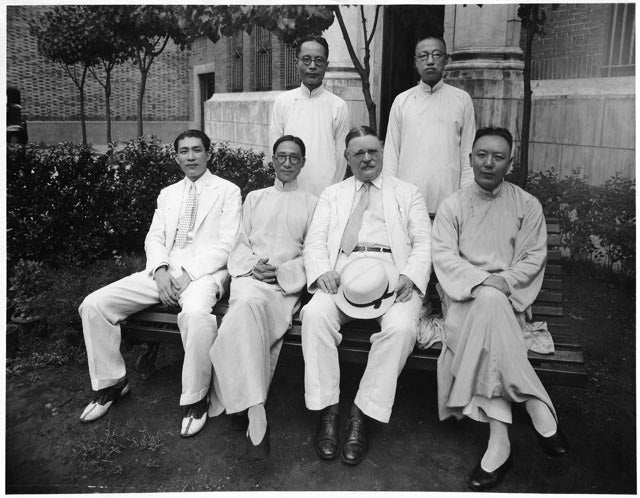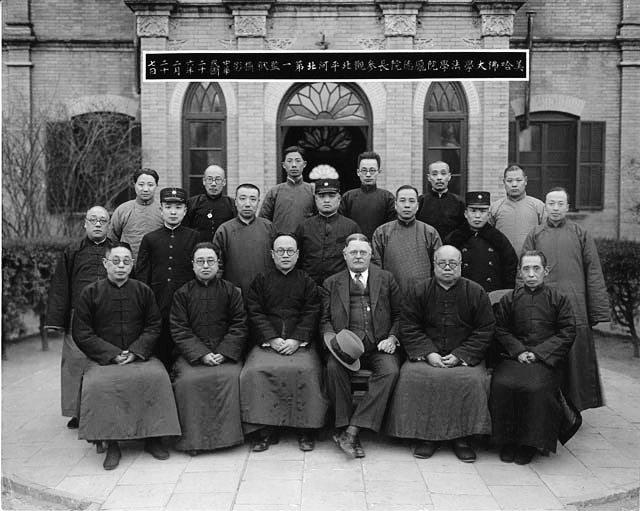Unfinished business: Roscoe Pound in China
Roscoe Pound, HLS dean from 1916 to 1936, was ready for a new challenge in 1946 when the Kuomintang government invited him to survey the Chinese judicial system and advise on legal education.

In what Pound described as the “biggest job” he had ever undertaken, the 75-year-old scholar went to war-torn China hoping to help shape its legal system.
“[T]he government was still struggling to re-establish the courts in many places where the judges had been compelled to flee. Often the records of the courts had been destroyed, the court buildings dismantled … ,” wrote Pound in 1946. He spent the next two years “crawling around prisons and visiting courts and writing numerous reports,” said Professor William Alford ’77, head of East Asian Legal Studies at HLS. Alford, who is writing about Pound’s years in China, says that the former dean’s work was very thoughtful about the tensions between looking to the past and looking abroad for models. Although events derailed many of Pound’s hopes for legal reform, “his work is an example of a thoughtful and constructive foreign effort to assist Chinese legal development,” said Alford.

